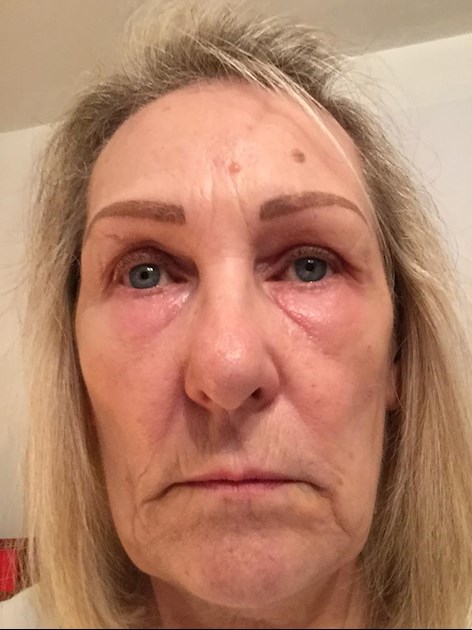I often have Cod and Chips from my local chip shop but the past couple of times I have my eyes have swollen up
Can you become allergic to a food you normally have without a reaction ?
Ann B

I often have Cod and Chips from my local chip shop but the past couple of times I have my eyes have swollen up
Can you become allergic to a food you normally have without a reaction ?
Ann B
That is not a reaction which I have heard of, but it is possible to develop an allergy to cod (I can't eat it). I suggest you see your doctor.
The only alternative I can think of if it only happens when you have cod and chips from the local chip shop is the fryers can give off quite a lot of greasy smoke (although they are supposed to be properly ventolated) and this could cause eye irritation?
Yes, you can become allergic to a food you normally eat, especially if you have a lot of it.
It happened to me with soya milk after 30 years.
Can you find out if they've changed their oil recently? Or if not, then their supplier?
If it's groundnut oil then you could have a peanut allergy.
Soya oil may produce an allergic reaction too...
It looks quite severe, so don't eat the same again as sometimes the reactions get worse.
Possibly there could be groundnut or soya oil included in a mixed vegetable oil, but less likely to be groundnut oil as it's more expensive.
Rapeseed oil, sunflower and olive oil are usually the best for people with allergies.
However, my great Aunt got swelling and allergic reactions when she eat fish, it took her about 3 weeks to recover fully - obviously years ago before antihistamines etc.,
Maybe you could ask your doctor to arrange for you to be allergy tested, particularly for the foods included in the fish and chips, etc.?
I carry epipens for severe reaction to peanut and other things....so I sympathise. It often takes a lot of detective work on your own account to locate the source of the problem.
I hope this helps and you feel better soon.
So sorry to hear about your allergy, Ladybex. I can truly relate!
Yes, you can develop allergies to foods you normally could eat. What I've discovered is sometimes it's the preservatives and/or additives used in foods that cause problems.
Not to diverge from your specific allergy, but I would like to share what I've discovered about water.
For years, I could not understand why I got allergic reactions from city water from my tap. Researching on the internet I discovered that there are people who have been diagnosed with 'Water Allergy'. This sounds ridiculous to me since we all need water to survive.
So, I did more digging into this issue. After speaking with a technician from our local water company, I discovered that the final filter that city water goes through is to kill bacteria. It's Magnesium Sulfate. I am severely allergic to sulfate. So, it makes sense to me that I would have a reaction to city water.
Also, when I had allergy tests, both scratch tests on my back and blood testing, I tested positive for most foods! I contacted the company that manufacturers the test products and asked if there is a way to differentiate between the food we consume and the food that the tested animal consumed. They said 'No'. For example, I discovered that 'organic' chickens are fed sunflower seeds as a main diet staple. I am severely allergic to sunflower seeds. Funny thing is that when I eat the cheap chicken, I have no reaction. I suppose sunflower seeds are expensive and the cheap chickens are probably fed corn.
Also, I love a particular coconut milk beverage. They sell it in 2 different ways. One way is in the fresh dairy display, where milk products are sold. It needs to be refrigerated. The second way is in those new cardboard containers that do not need refrigeration. I cannot drink the one in the non-refrigerated area. I found out why. The non-refrigerated beverage contains 'Carrageenan' which is a substitute for gelatin and is a food stabilizer. It is produced by passing seaweed through sulfate process. There is no Carrageenan in the refrigerated product.
To better understand our allergies, we really need to look at the additives and, whenever possible, the things that go into the foods we eat. I'd say, fertilizer for produce and feed for livestock.
I hope these tips help someone.